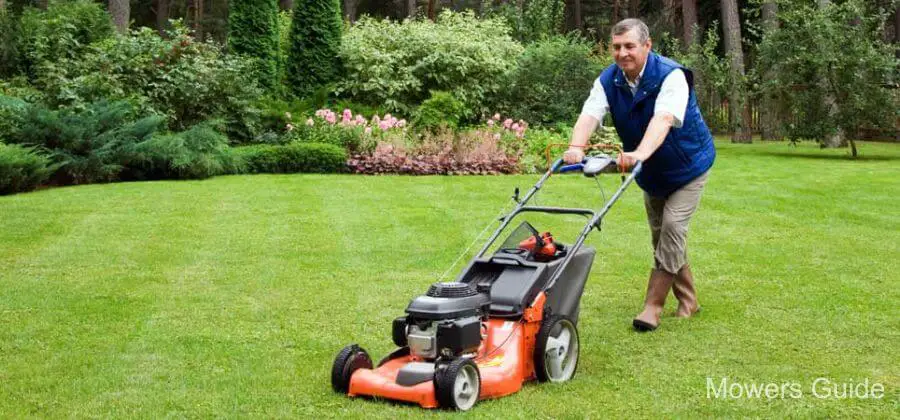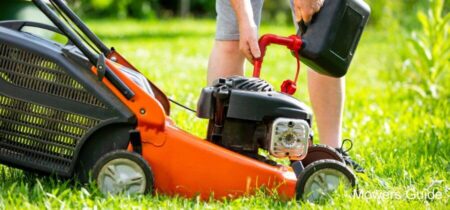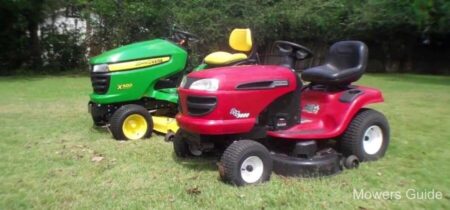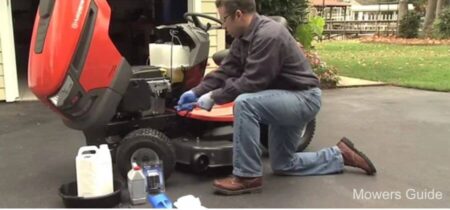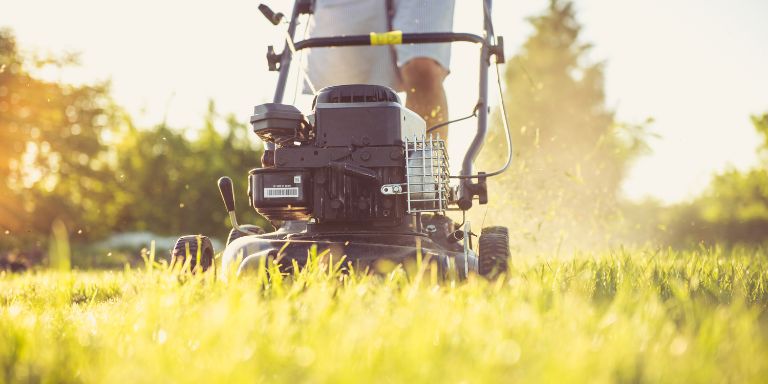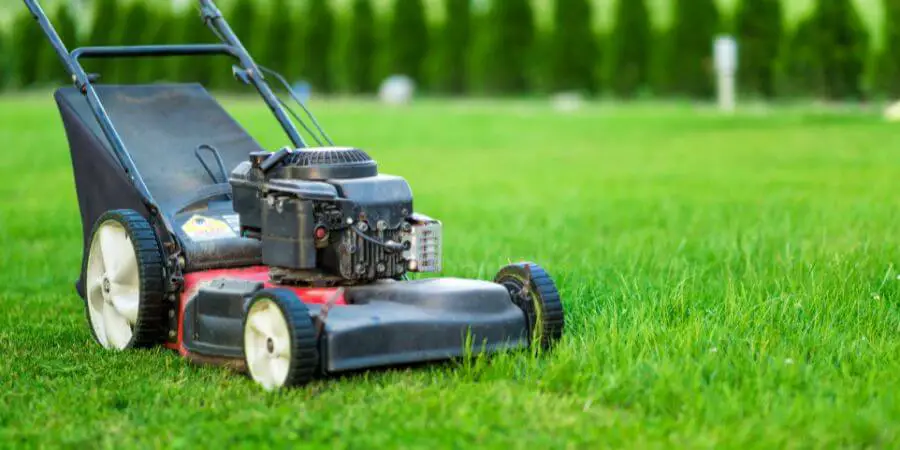So you want to know if your trusty lawn mower can handle a little rain. As a busy homeowner, you’ve got enough to worry about without having to rush out and cover your mower every time there’s a chance of showers. The good news is that a little water never hurts most mowers. But before you leave it out during a downpour, there are a few things you should know.
Modern mowers are designed to withstand normal exposure to the elements, but they do have their limits. Leaving your mower soaked for days on end can shorten its lifespan and lead to rust or damage. But an occasional rain shower? As long as you take some basic precautions, your mower should be just fine. Here’s what you need to know about leaving your lawn mower out in the rain.
Dangers of Leaving Your Lawn Mower in the Rain
Leaving your lawn mower out in the rain can cause some serious damage. All that water seeping into the engine and electrical components is bad news.
For starters, the rain can rust critical parts like the blades, deck, and any exposed metal pieces. Rust seriously hampers performance and safety, and it spreads fast. You’ll end up needing replacement parts sooner rather than later.
The rain also washes away essential lubricants and oils, leaving moving parts like the blade control lever and wheels without proper protection. This can lead to increased friction, squealing, and grinding—not good sounds coming from your mower!
Electrical Issues
It’s crucial to take additional care when it rains if you use an electric lawn mower. Water and electronics do not mix. At all. The rain can easily short out critical components like the starter, ignition system, and wiring. Once water gets into these parts, your mower may not start or run properly again without servicing by a professional.
Leaving your electric mower constantly exposed to the elements will significantly decrease its lifespan. Do yourself and your mower a favor. When done mowing, wipe it down, lubricate any necessary parts, and store it in a garage or shed. Your mower will thank you for it with years of faithful service.
Protecting the Engine and Electrical Components
If you want your lawn mower to last more than a couple of seasons, you’ll need to take care of it properly. That includes protecting it from the elements when possible. Leaving your mower out in the rain or snow can seriously damage the engine and electrical components, shortening its lifespan.
Storing Your Mower
The ideal situation is to store your mower in a garage or shed when not in use. If that’s not possible, at the very least cover it with a waterproof tarp, especially the engine, to shield it from precipitation. Make sure the tarp is securely tied down so it doesn’t blow away or collect rainwater.
Wipe it Down if Exposed
If your mower does get rained on or experiences heavy dew, wipe it down thoroughly before starting it up again. Water in the engine or carburetor can prevent it from starting or cause it to run poorly. Dry the spark plug, air filter, fuel filter, and everywhere else moisture may have collected. Lubricate the blades to prevent rusting.
By properly sheltering and maintaining your lawn mower after each use and during wet weather, you’ll keep its parts in working order and enjoy many seasons of reliable grass cutting. With some simple preventative steps, there’s no reason a little rain should put an end to your mower’s lifespan.
Preventing Rust on the Deck and Blades
To prevent rust on your lawn mower’s deck and blades, it’s best to avoid leaving it out in the rain whenever possible. However, if it does get wet, take these steps:
Dry It Off
As soon as you’re done mowing, wipe down the entire mower with a dry rag to absorb excess moisture. Pay extra attention to the underside of the deck, blades, and any bare metal parts. Let it sit out until completely air-dried before putting it away.
If rain catches you by surprise, bring the mower in as soon as possible. Dry all parts with rags to prevent standing water, which leads to rust. Leaving puddles of water on metal surfaces allows rust to form more quickly.
Lubricate and Sharpen
Apply a water-displacing lubricant, like WD-40, to the blades and deck. This protects the metal and prevents rust. At the same time, inspect the blades and sharpen or replace them if needed. Dull blades require more power to cut, adding extra stress to the mower.
Cover It Up
Once dried and lubricated, cover your mower with a waterproof tarp or breathable cover, or bring it under shelter like a porch or shed. Keeping it covered, especially in damp, humid weather, prevents exposure to moisture in the air, which also contributes to rust.
With some simple maintenance and care, you can keep your lawn mower in tip-top shape for years to come and prevent pesky rust from forming, even when the weather doesn’t cooperate. Take a few minutes after each use to properly dry, lubricate, and shelter your mower—your grass and mower will thank you!
Maintaining the Fuel System
To keep your lawn mower running at its best, you’ll want to properly maintain the fuel system. The fuel system includes the gas tank, fuel lines, carburetor or fuel injectors, and air filter.
Leaving your lawn mower out in the rain or elements can damage the fuel system over time. Moisture in the gas tank can lead to rust and corrosion. Water exposure can potentially affect the air filter, carburetor, and fuel lines. It’s best to store your lawn mower in a garage or shed when not in use.
When storing your mower for the off-season, be sure to empty the gas tank and run the engine until it stops to clear the carburetor and fuel lines of any remaining gas. Old or stale gas loses its ability to properly power an engine. You should also consider using a fuel stabilizer before the end of the mowing season to help keep gas fresh for a few months.
Replace your lawn mower’s air filter once a season or if you notice it looks dirty or damaged. The air filter prevents debris from entering the engine, so a clean filter is essential for performance and engine health.
Following these best practices for maintaining your lawn mower’s fuel system will help ensure it starts right up when you need it and continues running well for years to come. Performing regular maintenance like this, along with oil changes, blade sharpening, and cleaning the underside of the mower deck, will keep your lawn-mowing equipment in tip-top shape.
How to Store Your Mower Properly After Use?
Now that you’ve finished mowing the lawn, it’s important to properly store your mower to keep it in good working order. Leaving it out in the rain or harsh elements can significantly shorten its lifespan.
Find Cover
The best way to protect your mower from rain and weather is to store it in a garage or shed. If that’s not possible, look for an overhang, awning, or other covered area to park it under. As a last resort, you can invest in a waterproof mower cover to shield it from the elements when not in use.
Allow to Dry
Before putting your mower into storage, wipe down the exterior to remove any grass clippings or debris. Then, start the mower and let it run for a few minutes so the engine and blade can dry completely. This is especially important if you are mowing wet grass.
Shut off the mower and allow all parts to air dry for at least 30 minutes before covering or storing in an enclosed space.
Perform Maintenance
While your mower is drying, it’s a good time to do some basic maintenance. Sharpen the blade, check the air filter, and inspect the mower for any damaged or worn parts. Refuel the tank and add a fuel stabilizer to prevent the gas from going stale if stored for an extended period.
Consider Seasonal Care
For winter storage, do an oil change and grease all fittings, and consider using a fuel stabilizer designed for extended storage. Keep the mower off concrete floors, which can cause rust. With the proper precautions taken, you can keep your lawn mower in tip-top shape for years to come, no matter the weather.
What Will Water Do to a Lawnmower?
Leaving your lawnmower out in the rain can lead to damage if you’re not careful. Water exposure poses some risks to your mower that you’ll want to keep in mind.
Rust
One of the biggest threats rain poses to lawnmowers is rust. Metal parts like blades, bolts, and the mower deck can start to rust if left sitting in water or wet grass for extended periods.
Rust eats away at the metal and weakens these critical components, impairing performance and safety. To prevent rust, wipe down your mower after each use and apply a protectant like WD-40 to metal parts.
Engine Damage
The engine and air filter can also suffer from water exposure. Water can seep into the engine, fuel line, and air filter, causing damage or preventing the mower from starting. After mowing, place your mower on a level surface in a garage or shed to allow the water to drain and dry completely. This also prevents water from pooling in any part of the mower.
Dueling Blades
Wet grass clippings that stick to your mower’s blades can dull them over time. Dull blades tear-cut grass rather than cutting it cleanly, resulting in an uneven cut and an unhealthy lawn. Sharpen or replace your mower’s blades at the first sign of dulling to keep your lawn looking its best.
While an occasional rain shower won’t irreparably harm your mower, frequent or long-term exposure to water can cause costly damage. Following some basic care and maintenance tips will help prevent water damage, so your mower lasts season after season. Storing your mower in a garage or shed and wiping it down after each use are two of the easiest ways to keep it in working order for years to come.
How Do I Fix My Lawnmower When It Gets Wet?
If your lawnmower got caught in the rain, don’t worry—there are a few things you can do to get it back in working order.
Dry it Off Thoroughly
The most important first step is to wipe down your entire mower to remove excess water. Use an absorbent towel, cloth, or chamois to soak up water from all parts of the mower, including the handle, engine, under the cutting deck, and wheels. Make sure to remove standing water from any crevices or holes where it may have collected. Leaving water sitting on components can lead to rust and damage.
Once dry, do a quick check of the air filter and spark plug to ensure they are clear of water before attempting to start the engine. If the mower was submerged or water got into the engine, it’s best to have it serviced by a professional to avoid permanent damage before using it again.
Change the Oil
If a lot of water has contaminated the engine oil, it’s a good idea to drain and replace it. Water in the oil can damage internal parts when the mower is running. New, clean oil will lubricate the engine properly so it continues operating as intended.
Test in a Dry Area
Before mowing your lawn again, test the mower in a dry area to ensure all parts are functioning properly with no strange noises. Make sure the blade control and drive systems are engaging correctly. If anything seems off, it’s best to have a technician evaluate the mower. It’s not worth risking damage to your lawn or mower if water causes any issues.
With some TLC and by following these steps, a little rain shower shouldn’t keep your lawn mower out of commission for long. But when in doubt, don’t hesitate to contact a professional for advice or service—it’s better safe than sorry!
What If Your Lawn Mower Doesn’t Start After Getting Wet?
If your lawn mower won’t start after getting soaked in the rain, don’t panic. There are a few things you can try to get it running again.
Check the Air Filter
Remove the air filter and let it dry completely. A wet air filter prevents enough air from getting into the engine, causing starting issues. Replace the filter if it’s damaged.
Drain the Carburetor
The carburetor mixes air and fuel for combustion in the engine. Excess water in the carburetor prevents this from happening properly. Tilt the mower onto its side to drain any water from the carburetor bowl. You may need to detach the bowl to empty it fully. Let all parts air dry before reassembling.
Clean the Spark Plug
A fouled or wet spark plug can’t ignite the air-fuel mixture. Remove the spark plug and wipe off any water or debris. Allow it to air dry completely before reinstalling. You may need to gap or replace the spark plug if the electrode is damaged.
Check Other Components
Inspect the ignition coil, solenoid, and wiring for any damage or corrosion. Wipe down or replace parts as needed. Ensure all connections are tight and dry.
Add Fresh Fuel
Old or water-contaminated fuel also prevents starting. Drain the fuel tank and refill it with new, high-quality gasoline to ensure you have a clean air-fuel mixture.
With some troubleshooting and drying time, you should be able to get your lawn mower started again after rain exposure. However, if issues continue, it’s best to have it checked by a certified mechanic to assess for any permanent damage before operating. They can test components, replace damaged parts, and perform any necessary repairs to get your mower cutting grass again.
Conclusion
Leaving your lawn mower out in the rain certainly isn’t ideal and could potentially cause some damage over time. But an occasional overnight in the elements probably won’t destroy your mower if you take some basic precautions.
Just be sure to drain the gas, wipe it down, cover the engine, and do some routine maintenance. If you’re worried about rust or water damage, storing your mower in a shed or garage is the safest approach. But for most casual lawn mowers, using common sense storage and care will keep your mower running rain or shine.
FAQs
What happens if a lawnmower is left out in the rain?
Water has the potential to damage the motor’s numerous electrical components, leading to eventual motor failure. Even though gasoline engines are thought to be safer, your mower cannot be saved if water moves in. For this reason, regardless of the season, make sure your mower is stored in a dry, secure location.
Can a lawn mower withstand water?
Being waterproof for lawnmowers may seem unattainable because they are highly sensitive. Water can be kept out of the delicate areas by placing a protective plastic cover over them, although this won’t offer full protection. There is a big difference between the terms “waterproof” and “water-resistant.” When exposed to enough water, even water-resistant equipment might become destroyed.
For more mower related tips visit here and for more guides related to mowers visit Mowers Guide

